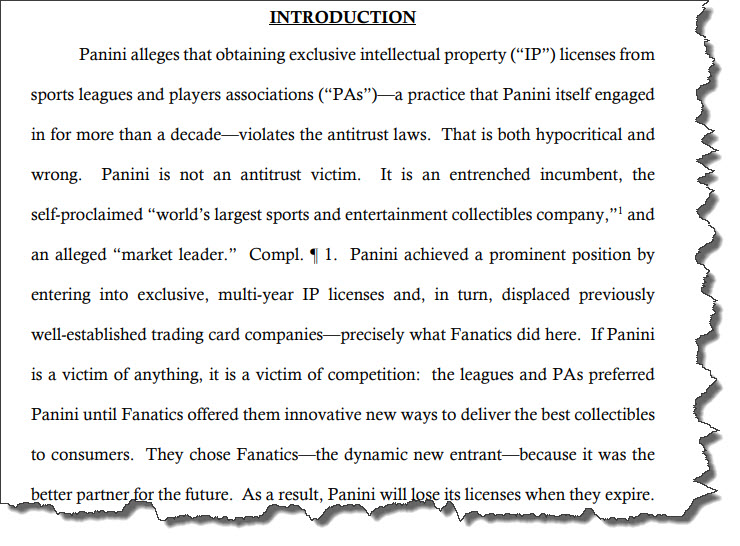In the bustling world of sports trading cards, tensions are rising between industry powerhouses, Fanatics and Panini. Fanatics, now at the forefront of the market, is in the crosshairs of an antitrust lawsuit initiated by Panini. The root of the dispute? Fanatics’ ambitious expansion, particularly into the NBA and NFL card spaces.
The U.S. District Court in Tampa, Florida, is the chosen venue for this showdown. Fanatics remains steadfast in its defense, arguing that Panini’s allegations lack substance. They point out the irony that Panini, having monopolized exclusive intellectual property licenses from sports entities for years, now objects to similar maneuvers by Fanatics.
Highlighting a comprehensive 35-page document, Fanatics delves into Panini’s history of obtaining sole rights from sports leagues and athletes. Fanatics argues that Panini’s previous strategy is not different from what Panini now critiques. Fanatics posits that if Panini feels sidelined, it’s more a reflection of the shifting market dynamics than any misstep on Fanatics’ part.
While Panini’s bone of contention lies in Fanatics’ pursuit of NBA and NFL licenses, Fanatics retaliates by emphasizing their rightfully earned 2021 exclusive agreements with industry titans like the NBA, NFL, and MLB.
Further defending their integrity, Fanatics stresses its transparent business practices. They highlight that they never swayed any league or players’ association away from Panini’s offers. Fanatics is also quick to debunk any notions of covert tactics employed to sway decisions in their favor.
In this legal face-off, Fanatics draws attention to Panini’s lack of concrete evidence backing their antitrust claims.
However, the waters are muddied further as Panini takes its legal fight to Texas. This move is attributed to a mass migration of key Panini staff to Fanatics. Adding salt to the wound, Fanatics invested heavily in the printing company that formerly served Panini. Additionally, Fanatics’ exclusive contracts with three NFL Draft newcomers meant their autographs were notably absent from Panini’s latest NFL card lineup.
Fanatics attributes these moves to the natural progression of market trends. After securing their licenses, their mission was clear: to enhance the collector experience. This includes everything from talent acquisition, amplifying printing operations, to establishing player partnerships.
In the midst of these legal tussles, Fanatics maintains its innocence. They refute any breach of contract claims concerning the employees who migrated from Panini. Their narrative remains consistent: those professionals sought better opportunities at Fanatics. Plus, Fanatics views their exclusive athlete deals as strategic, emphasizing they are legal means to serve their partners better and increase their market presence. They assert that none of their actions are intended to undermine Panini’s foothold in the industry.

